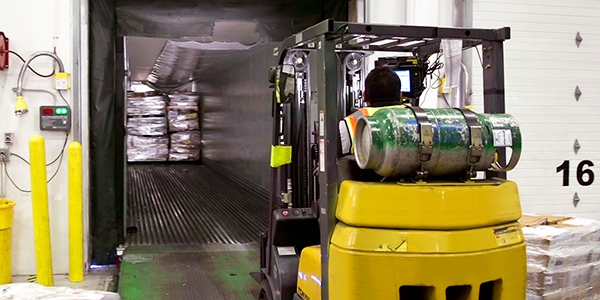
As the capacity crunch continues to be an issue for shippers and supply chain companies, logistics professionals are now confronted with yet another roadblock: the looming supply chain talent gap. While the supply chain talent shortage hasn’t developed into a crisis, it’s still something that businesses should be preparing for in order to stay ahead of their competition and be prepared for what the future may bring.
What’s in a name? Defining the supply chain talent gap
The supply chain talent gap represents the issue many supply chain entities —from manufacturers to warehouses and fulfillment centers, carriers and many other logistics companies — are having in filling jobs with employees equipped with the necessary skills for the position. This isn’t to say there are no people looking for work, but many of these positions require skills that a large portion of the workforce simply do not have.
This leaves businesses with the choice of either hiring and training new employees (at a great expense) or trying to consolidate positions without overburdening the employees they have on staff.
While not a new concern, the problem has been growing for a few years and has just begun to take root. Estimates from the Bureau of Labor Statistics are that demand for supply chain professionals will outpace supply by a ratio of six to one by 2020.
Digging deeper: the root causes of the supply chain talent gap
There are a few causes of the supply chain talent gap:
- An aging workforce: in the U.S., 10,000 baby boomers turn 65 each day, and many retire from more labor intensive logistics positions even earlier.
- New technology = new skills: as new technology (automation, robotics, big data) is introduced into the industry, established employees are struggling to keep up and newer employees are entering the workforce without the proper training and skills.
- Perception of the field: younger generations view the logistics field as a blue collar, manual labor field, meaning they do not choose to study it. This results in college graduates who lack the skills needed in an industry that has become more technical and white collar.
Solving the equation: how businesses can fill the supply chain talent gap
Businesses need to prepare themselves to hire new or retain existing employees before the talent gap in the industry widens. It has become incumbent upon them to build talent from within their company while deploying as many strategies to retain their existing employees as possible.
Both of these methods require a heavy allocation of time, money and other resources, which can put a strain on any business, but there is another way: consolidating your supply chain with an outsourced logistics provider. Third party logistics providers have talented teams of logistics professionals (from warehousing and fulfillment to route planning and all other supply chain disciplines) that help businesses get the most out of their supply chain. You don’t have to struggle to find employees with the skills you need, all you have to do is work with a logistics partner like King Solutions. Ready to talk solutions? So are we. Contact our team today.







 Joel Rice
Joel Rice